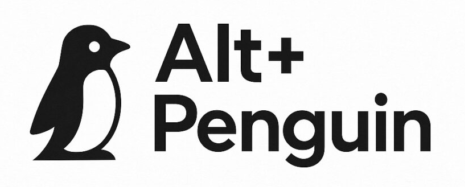Views: 0
Saving money is not always about huge breakthroughs. Often, it comes down to making steady, smart decisions across the calendar. The right mindset, the right habits, and the right tools combine to keep more cash in your pocket.
Today’s tool of choice is not a financial advisor or an accountant. It is an intelligent assistant that can draft plans, calculate scenarios, and cut wasted spending in minutes. That is why this guide focuses on ChatGPT Prompts That’ll Save You $500 This Year.
Think of prompts as the key to unlocking overlooked savings. They serve as instructions that allow ChatGPT to generate lists, action plans, and strategies tailored to your needs. When used consistently, they sharpen your decision-making, prevent needless expenses, and create new opportunities for efficiency.
By the end of this article, you will have a toolkit of prompts that can directly save you money in everyday life.
Why Prompts Can Save Real Money
Before diving into specific prompts, it is useful to understand why they matter. ChatGPT processes your instructions and returns structured guidance. With clear prompts, you gain access to:
- Budget frameworks built for your circumstances.
- Itemized lists that uncover hidden costs.
- Automated comparisons of subscriptions, services, and bills.
- Strategies to lower energy use, food waste, and transport expenses.
- Creative ideas for do-it-yourself alternatives to expensive purchases.
The phrase ChatGPT Prompts That’ll Save You $500 This Year is not marketing fluff. It reflects how precise language can turn an AI tool into a financial ally.
Budget Planning Prompts
Budgets are the foundation of financial discipline. Without structure, money slips away unnoticed. Prompts make the process faster and more consistent.
Prompt: Design a monthly budget for a single person earning $3,500 after taxes. Include categories for rent, food, utilities, savings, and entertainment. Keep total expenses below $3,000.
Prompt: Create a zero-based budget for a family of four. Allocate every dollar from $5,000 in monthly income to a category. Highlight areas where savings can be increased.
Prompt: List 10 unnecessary expenses people in their 30s often include in budgets. Suggest low-cost alternatives for each one.
By using these prompts, you identify excess spending and redirect funds toward savings. Even small changes, like cutting $40 a month in waste. Adds up to $480 annually, close to the $500 goal.
Subscription and Service Audit Prompts
Recurring charges often drain accounts without notice. ChatGPT can help you identify and evaluate them.
Prompt: Make a checklist for auditing monthly subscriptions such as streaming services, apps, and memberships. Include instructions for canceling and tracking usage.
Prompt: Compare the average monthly cost of top streaming platforms. Recommend a rotation strategy to use only one or two services at a time while still covering favorite shows.
Prompt: Create a script for calling customer service to negotiate a lower internet bill. Include three persuasive points based on industry averages.
Auditing subscriptions can save $20 to $50 per month. That alone can reach or exceed the ChatGPT Prompts That’ll Save You $500 This Year target.
Grocery and Meal Planning Prompts
Food costs rise quickly without planning. Prompts streamline shopping lists and meal prep to cut waste.
Prompt: Draft a weekly meal plan for two adults on a $75 grocery budget. Include breakfast, lunch, dinner, and snacks with minimal waste.
Prompt: Write a grocery shopping list using only staple ingredients under $40 for one week. Prioritize versatility and long shelf life.
Prompt: Suggest 10 creative recipes to use leftover vegetables and rice. Keep cooking steps simple and affordable.
Meal planning prompts like these can save $10 to $15 weekly by reducing impulse purchases and spoiled food. That totals $500 or more across a year.
Energy and Utility Prompts
Utilities are necessary, but wasteful use inflates bills. Prompts help find ways to cut consumption.
Prompt: List 12 practical steps to lower an electric bill in an apartment. Rank them by ease of implementation and savings potential.
Prompt: Generate a guide for reducing water usage at home. Include actions for laundry, dishwashing, and showers.
Prompt: Draft a checklist for preparing a home for winter that lowers heating costs. Prioritize no-cost or low-cost actions first.
Lowering utility bills by $20 monthly amounts to $240 annually. Combine that with other categories, and ChatGPT Prompts That’ll Save You $500 This Year becomes very realistic.
Transportation Prompts
Commuting, fuel, and car maintenance add up fast. Prompts can optimize routes and habits.
Prompt: Plan a weekly commute that balances fuel savings with time efficiency. Assume a 30-minute one-way drive with variable traffic.
Prompt: List 8 strategies to extend the lifespan of a used car. Focus on low-cost maintenance actions.
Prompt: Compare costs between owning a car, using rideshares twice daily, and taking public transit. Present results in a table with monthly and annual totals.
Transportation savings might be as small as $5 per week or as large as hundreds depending on changes. Prompts help uncover hidden opportunities.
Shopping and DIY Prompts
Impulse buying and reliance on convenience services drain wallets. Prompts can create DIY paths.
Prompt: List 15 household cleaning solutions that can be made with vinegar, baking soda, and lemon. Include recipes and instructions.
Prompt: Write a step-by-step guide for repurposing old clothes into cleaning rags, bags, or quilts.
Prompt: Suggest a checklist for avoiding impulse purchases when shopping online. Include a 24-hour waiting rule and budgeting reminders.
DIY and mindful shopping habits can easily save $100 annually. Combine them with other areas, and you are still tracking toward ChatGPT Prompts That’ll Save You $500 This Year.
Healthcare and Wellness Prompts
Health expenses add up quickly. While serious care requires professionals, lifestyle improvements reduce costs.
Prompt: Create a 30-day home workout routine requiring no equipment. Focus on strength, flexibility, and cardiovascular health.
Prompt: Suggest a weekly meal prep guide that supports balanced nutrition for under $50 per person.
Prompt: Generate a checklist of preventive health habits that lower the likelihood of costly doctor visits.
Maintaining health with consistent routines reduces risk. Preventing even one unnecessary clinic visit may save $100.
Travel and Leisure Prompts
Entertainment is vital for balance. Yet overspending here often erodes budgets. Prompts guide low-cost enjoyment.
Prompt: Plan a weekend getaway for two within a $200 budget. Include transportation, lodging, food, and activities.
Prompt: Suggest 10 free or nearly free hobbies that can replace expensive entertainment. Include indoor and outdoor options.
Prompt: Design a monthly leisure budget for a family of four. Include local activities, free museum days, and library programs.
These adjustments keep fun intact without draining savings. Over 12 months, changes like these contribute significantly to the $500 total.
Income Boost Prompts
Sometimes saving money means earning just a bit more to offset costs. Prompts can generate side hustle ideas.
Prompt: List 12 part-time income ideas requiring no upfront cost. Rank by time commitment and earning potential.
Prompt: Create a weekly schedule for adding 5 hours of freelance work to a full-time job. Suggest high-value tasks like writing, tutoring, or design.
Prompt: Generate a list of digital products I could create in one weekend to sell online. Include potential pricing and platforms.
A few hundred dollars of side income closes gaps. Pair with spending reductions, and ChatGPT Prompts That’ll Save You $500 This Year is almost guaranteed.
Case Study: A Year of Savings
Imagine a person applying these prompts consistently.
- Subscription audit saves $20 monthly ($240 per year).
- Grocery planning reduces food waste by $10 weekly ($520 per year).
- Utility improvements cut $15 monthly ($180 per year).
- DIY shopping alternatives save $10 monthly ($120 per year).
Total: $1,060. The goal of $500 is not only met but doubled. That shows the practical impact of using well-structured prompts.
Avoiding Common Pitfalls
While prompts are powerful, some pitfalls can undermine results.
- Vague instructions: Without specificity, outputs are too general.
- No follow-through: A plan unused is money wasted.
- Ignoring personalization: What works for one household may not for another.
- Focusing on large wins only: Smaller consistent savings are equally important.
Staying aware of these pitfalls ensures that ChatGPT Prompts That’ll Save You $500 This Year deliver practical outcomes.
The Long-Term View
One year of savings is a milestone. Yet the value grows when you repeat the system annually. In five years, prompts like these may save you $2,500 or more. More importantly, you develop a mindset that sees every expense as adjustable. Prompts become the training wheels for long-term financial control.
The guiding phrase, ChatGPT Prompts That’ll Save You $500 This Year, is not about a single year. It is about building habits of analysis, creativity, and mindful spending that compound across decades.
Closing Thoughts
Financial improvement is not a lottery win. It is a series of informed choices. Prompts provide the structure for those choices. With them, you reduce waste, cut costs, and even find opportunities to earn more.
Adopt the examples in this article. Customize them for your household. Treat each prompt as both a tool and a lesson. By doing so, you will not only save $500 this year but also lay the groundwork for a healthier financial future.
Remember, money saved is freedom gained. Every time you use these strategies, you are buying back control of your life. That is the quiet power behind ChatGPT Prompts That’ll Save You $500 This Year.








